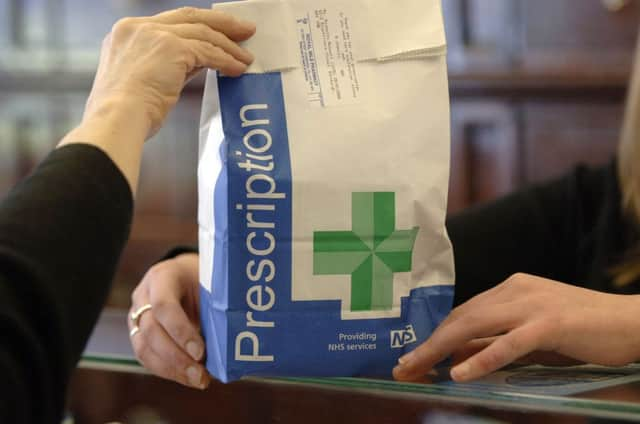Good reasons pharmacists don’t rush prescriptions


It’s only a box, surely it will only take a minute? As a pharmacist, this is a phrase I often hear.
It is an understandable statement from a patient perspective. Often they have waited patiently for a GP appointment and been prescribed a treatment based on their needs. The last thing they want is to wait for a medicine which a pharmaceutical manufacturer has kindly packaged into a neat box.
Advertisement
Hide AdAdvertisement
Hide AdPharmacists are experts in medicines and it is this expertise that is used when a prescription enters the pharmacy.
Every prescription that passes through a pharmacy has to be clinically checked to ensure it is safe and appropriate for the patient. This clinical check consists of a number of factors:
* Patient age – care has to be taken with children and elderly patients with their medicine.
* Indication – is what is prescribed what the patient expected?
* Dose – is it correct and safe?
* Interactions – is the patient on other medication that will be affected?
Recent studies have indicated that 1 in 20 items have mild to moderate prescribing errors attached to them and 1 in 5501 items have a serious error. This is where the pharmacist uses their skills to effectively act as the goalkeeper for their patients’ medication.
Community pharmacies are contracted by the NHS to provide a prescription supply service. The volume of prescriptions being checked by the community pharmacy network has increased by over 40 per cent over the last decade or so with the number of prescription items for 2012/13 topping 97 million.
Patient safety is the most important role for pharmacists to play when dealing with patients’ prescriptions; a rushed prescription could lead to an adverse event for a patient.
Advertisement
Hide AdAdvertisement
Hide AdWhen dealing with over 97 million dispensing episodes it is important to deliver efficiently, but more importantly safely. We are there to ensure no harm comes to any of our patients.
Mistakes, unfortunately, can and will always happen when any process relies on human intervention; however as healthcare professionals it is one of our primary roles to ensure that the procedures we have in place in our workplaces are robust and safe for the patients we serve.
It is for this reason that, by law, the pharmacist has to be on the premises to supervise the handing out of prescription medication and the sale of certain over the counter products. This cannot be performed when no pharmacist is present and again, due to the EU working time directive, pharmacists, who often work alone in pharmacies, are required to take at least a 20 minute break from the services they provide: an important break when dealing with prescription medicines.
As well as prescriptions a pharmacy team has to deliver important public health services such as smoking cessation, sexual health services and other lifestyle interventions.
This on top of the general running of the pharmacy ensuring that the sale of over-the-counter medicines is performed safely and the pharmacy is well stocked.
In fact it is estimated that over 44 million healthcare episodes take place in community pharmacies in Scotland every year outwith the 100 million dispensing episodes mentioned.
Recently published research provides conclusive evidence that collaboration between pharmacists and GPs makes care safer.
The NHS spends around £1 billion on medicines in Scotland each year. We must do more to maximise the benefits of that investment. The public can be confident that pharmacists and GPs already work collaboratively to make sure the use of powerful prescription medicines is safe and effective.
Advertisement
Hide AdAdvertisement
Hide AdWe would call for greater collaboration between GP and community pharmacists to enhance patient safety further. Appropriate sharing of information around diagnosis and medicines would reduce risk and harm for patients in the community. The systems are there for healthcare professionals to maximise the service we can deliver for patients: we should use it.
The Cabinet Secretary for Health and Wellbeing, Alex Neil MSP, has boldly stated the Health Service in Scotland is “the safest in the world” due to the recent emphasis on patient safety initiatives.
I would like to think the community pharmacy network has had this at the forefront of working practice from the beginning and the service we provide around the supply of prescriptions is one example of this.
• Harry McQuillan is chief executive of Community Pharmacy Scotland www.communitypharmacyscotland.org.uk
SEE ALSO